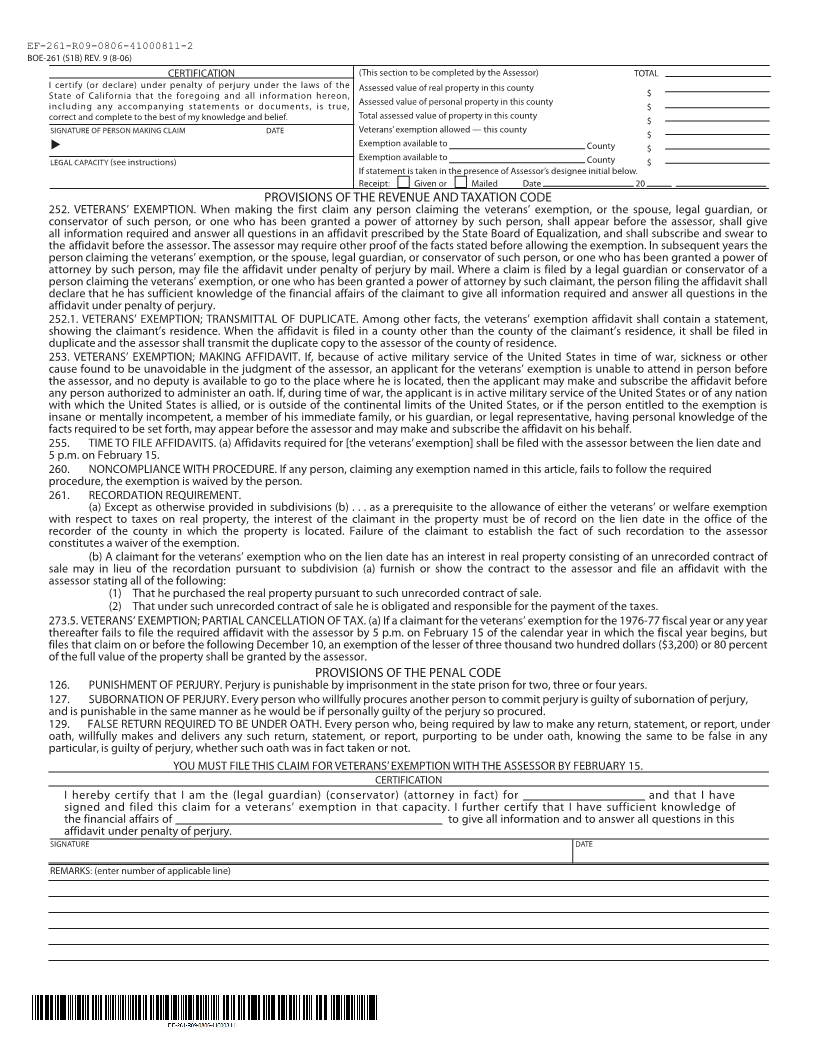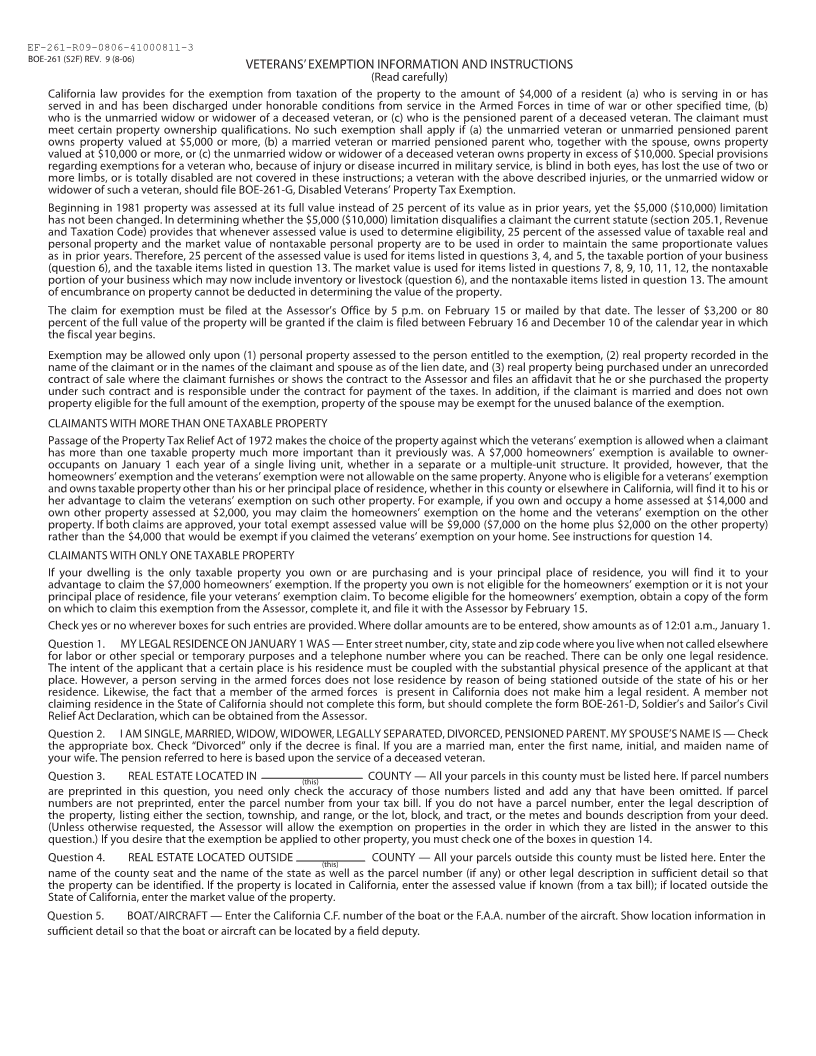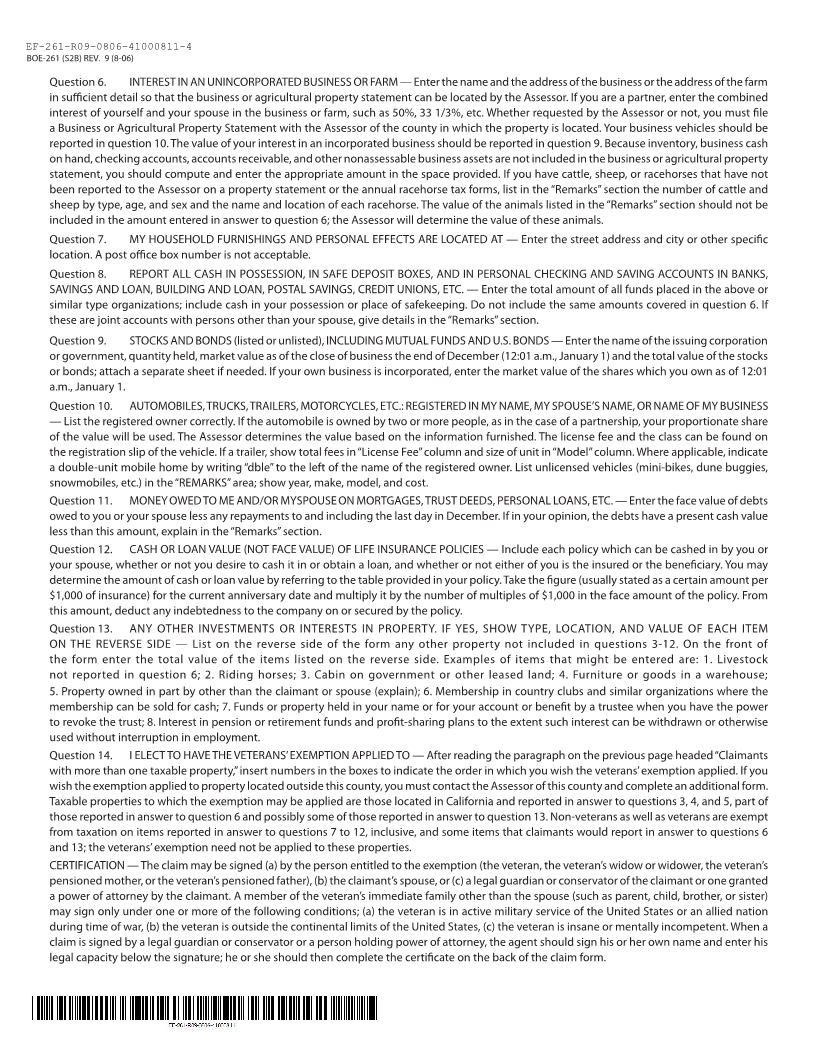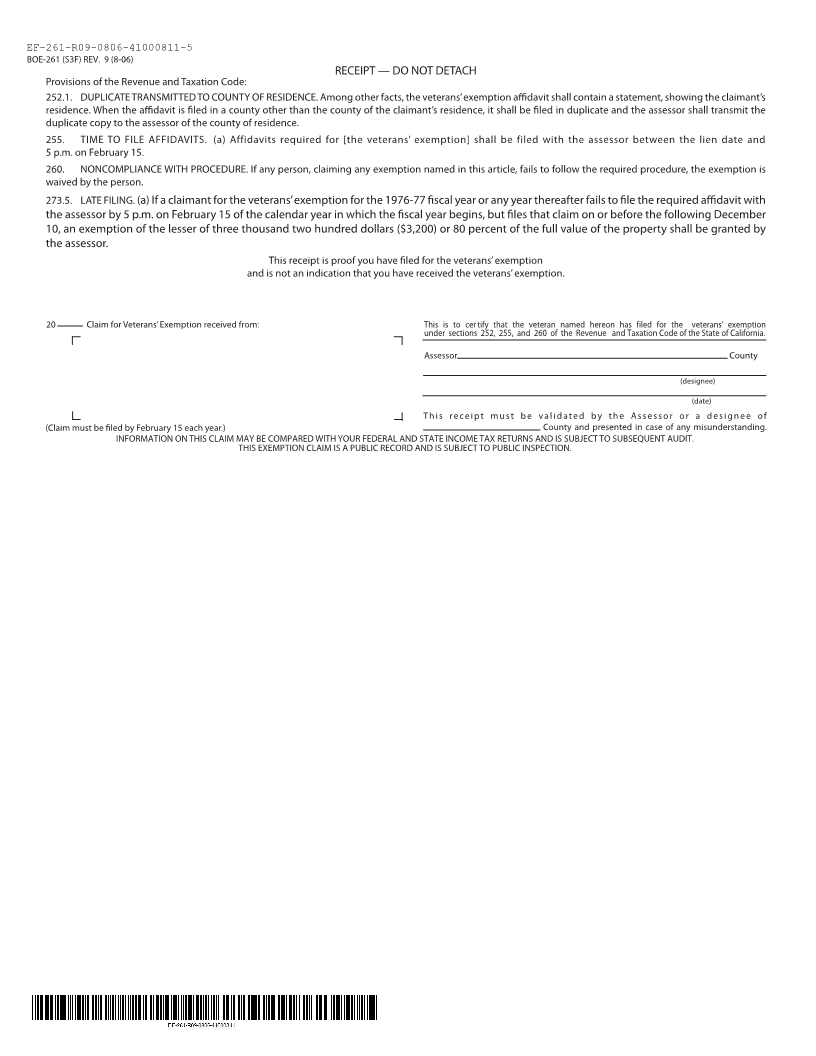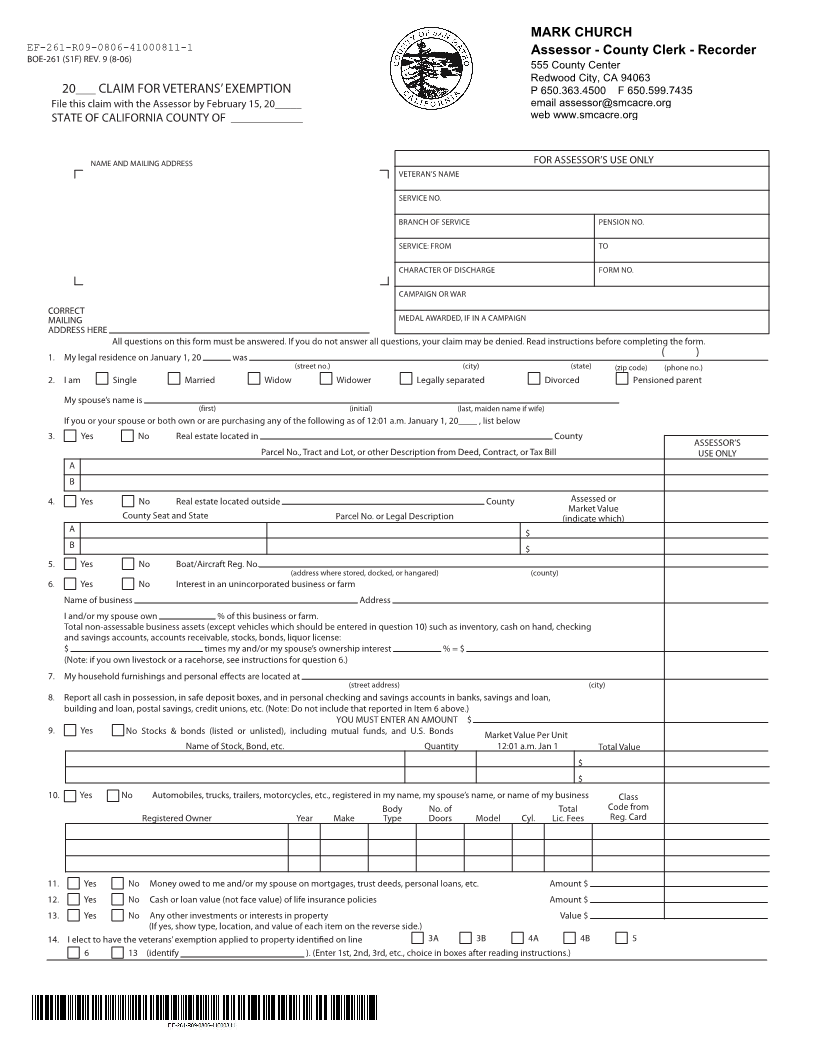
Enlarge image
MARK CHURCH
EF-261-R09-0806-41000811-1 Assessor - County Clerk - Recorder
BOE-261 (S1F) REV. 9 (8-06) 555 County Center
Redwood City, CA 94063
20___ CLAIM FOR VETERANS’ EXEMPTION P 650.363.4500 F 650.599.7435
File this claim with the Assessor by February 15, 20_____ email assessor@smcacre.org
STATE OF CALIFORNIA COUNTY OF ____________ web www.smcacre.org
NAME AND MAILING ADDRESS FOR ASSESSOR’S USE ONLY
VETERAN’S NAME
SERVICE NO.
BRANCH OF SERVICE PENSION NO.
SERVICE: FROM TO
CHARACTER OF DISCHARGE FORM NO.
CAMPAIGN OR WAR
CORRECT MEDAL AWARDED, IF IN A CAMPAIGN
MAILING
ADDRESS HERE
All questions on this form must be answered. If you do not answer all questions, your claim may be denied. Read instructions before completing the form.
1. My legal residence on January 1, 20 was ( )
(street no.) (city) (state) (zip code) (phone no.)
2. I am Single Married Widow Widower Legally separated Divorced Pensioned parent
My spouse’s name is
(first) (initial) (last, maiden name if wife)
If you or your spouse or both own or are purchasing any of the following as of 12:01 a.m. January 1, 20____ , list below
3. Yes No Real estate located in County
ASSESSOR’S
Parcel No., Tract and Lot, or other Description from Deed, Contract, or Tax Bill USE ONLY
A
B
4. Yes No Real estate located outside County Assessed or
Market Value
County Seat and State Parcel No. or Legal Description (indicate which)
A $
B $
5. Yes No Boat/Aircraft Reg. No.
(address where stored, docked, or hangared) (county)
6. Yes No Interest in an unincorporated business or farm
Name of business Address
I and/or my spouse own % of this business or farm.
Total non-assessable business assets (except vehicles which should be entered in question 10) such as inventory, cash on hand, checking
and savings accounts, accounts receivable, stocks, bonds, liquor license:
$ times my and/or my spouse’s ownership interest % = $
(Note: if you own livestock or a racehorse, see instructions for question 6.)
7. My household furnishings and personal effects are located at
(street address) (city)
8. Report all cash in possession, in safe deposit boxes, and in personal checking and savings accounts in banks, savings and loan,
building and loan, postal savings, credit unions, etc. (Note: Do not include that reported in Item 6 above.)
YOU MUST ENTER AN AMOUNT $
9. Yes No Stocks & bonds (listed or unlisted), including mutual funds, and U.S. Bonds Market Value Per Unit
Name of Stock, Bond, etc. Quantity 12:01 a.m. Jan 1 Total Value
$
$
10. Yes No Automobiles, trucks, trailers, motorcycles, etc., registered in my name, my spouse’s name, or name of my business Class
Body No. of Total Code from
Registered Owner Year Make Type Doors Model Cyl. Lic. Fees Reg. Card
11. Yes No Money owed to me and/or my spouse on mortgages, trust deeds, personal loans, etc. Amount $
12. Yes No Cash or loan value (not face value) of life insurance policies Amount $
13. Yes No Any other investments or interests in property Value $
(If yes, show type, location, and value of each item on the reverse side.)
14. I elect to have the veterans’ exemption applied to property identified on line 3A 3B 4A 4B 5
6 13 (identify ). (Enter 1st, 2nd, 3rd, etc., choice in boxes after reading instructions.)
